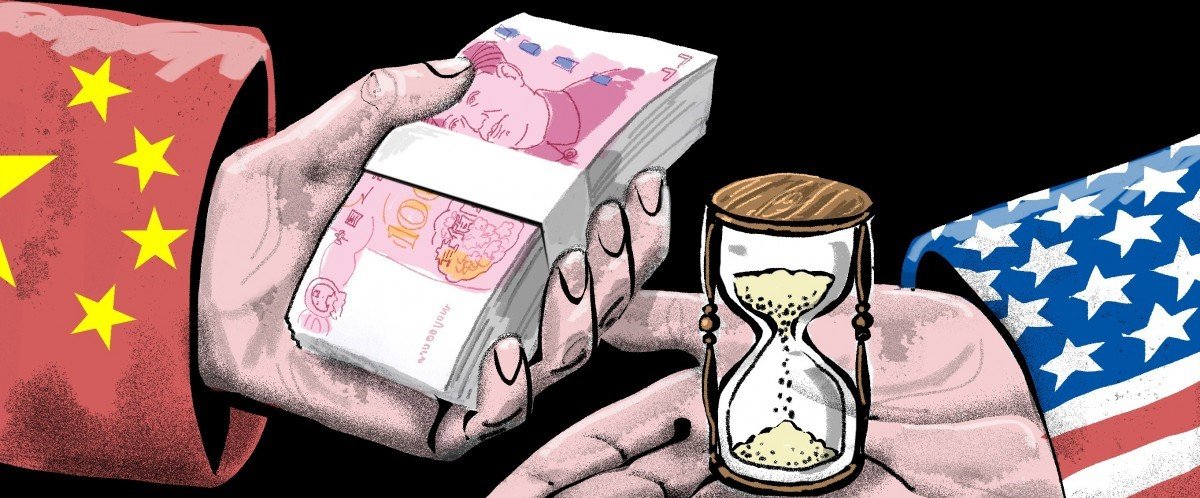

May
It is oftentimes considered quasi-axiomatic that “time in” the market (having exposure to certain assets) beats “timing” the market, in other words beats trying to predict tops and bottoms. Some market participants swear by this adage, others roll their eyes due to considering it so overly-used that it lost all substance.
What does the ChinaFund.com team think about this phrase in the context of Chinese assets?
Do we believe that trying to predict tops and bottoms makes sense or, on the contrary, do we advise against trying to predict the future?
To provide an answer right off the bat and then elaborate, we want to make it clear that we DO NOT believe this phrase should be understood in a “one size fits all” manner. In other words, do not make the mistake of assuming that when it comes to absolutely any asset, the name of the game is being in the market and that those who do so will be rewarded in the long run. If you believe that, there are quite a few investors in Beanie Babies who would love to send a few your way for a “fair” price.
However, we DO believe that the adage makes perfect sense for assets that we have valid reasons to believe are in a secular bull market. A solid example to that effect would be represented by US stocks, with for example the S&P 500 only experienced 10 years of losses from 1975 up until the end of 2019. We can go back even further, from 1928 up until 2019 and despite the fact that our calculations will include financial calamities such as the Great Depression of 1929, annual S&P 500 returns are quite close to the 10% zone.
Those who understand compound interest and are willing to use their imagination can fill in the blanks.
Let’s just say that if your grandfather would have been an average middle class person with nothing special going for himself income generation-wise but who would have diligently set money aside and invested in S&P 500 shares over his lifetime, your family would have been more than grateful for the financial blessing in question.
In contrast, someone who tried to continuously beat the market by predicting tops and bottoms would have had every chance to do much worse, especially knowing what we know now about how the overwhelming majority of retail traders lose money. As such, for assets such as the S&P 500, it is indeed quasi-axiomatic that time in the market beats timing the market.
What about Chinese assets?
In our view, in light of the fact that we also believe “all things China” to be in a multi-generational bull market, those who deploy patience will most likely end up being more than content with the manner in which the market rewards them.
Can we be 100% certain?
Of course now.
When analyzing the track record of the S&P 500, we are doing so with the game-changing advantage of hindsight. It’s not exactly a matter of determining IF the S&P 500 is in “generational bull market” territory because… well, we already know that to be true. Those who accumulated US stocks let’s say 50-60 years ago were acting on considerably less information than us and we now know that the market rewarded them very generously for their courage. If you gain exposure to the S&P 500 now, in light of the fact that it is more than established to be in a secular bull mega-trend, it is fair to understand that even if the market will reward you, chances are it will do so less generously because while previous generations blazed trails, you are currently walking on already-blazed ones.
When it comes to China, a valid case could be made that those who invest in Chinese assets now are in “trail blazing” territory and as such:
- Should they be correct in their assumption that China is in a multi-secular bull trend, the market will reward them most generously
- Should they be wrong, they just have to accept the fact that they took on risk and it didn’t work in their favor
Perhaps most importantly in this entire equation, please keep in mind that investors in US shares have had anything but an easy ride. As mentioned previously, our data set when calculating the average yearly returns included nightmare-level financial calamities such as the Great Depression of 1929, the crash of 1987, let’s not even talk about World War II and other examples.
It is easy to look back and envy S&P 500 investors for how easy they have had it when analyzing their returns but it would be a short-sighted perspective at best, with “ignorant” being a more precise term. Would you have held through the Great Depression or sold for pennies on the dollar due to losing your job and having to somehow put food on the table? What about the 1987 flash crash, the largest single-day US stock market crash in history, would you have had weak or strong hands in the scenario in question? How did you feel during the Great Recession and how are you feeling in 2020?
The bottom line is this: even if you correctly identify multi-generational bull trends, investing will be anything but easy.
Embark on your journey of accumulating Chinese assets with a “free lunch” mindset and it is pretty much assured that other market participants will end up eating the lunch you took for granted and thought was free.
Embark on your journey of accumulating Chinese assets with a wisdom and resilience-oriented mindset, however, and future generations will most likely end up thanking you. Should you be in need of assistance with respect to creating a strategy that enables you to do just that, the ChinaFund.com team is only a message away and can be reached by visiting the Contact section of our website.
